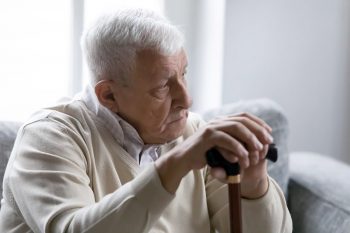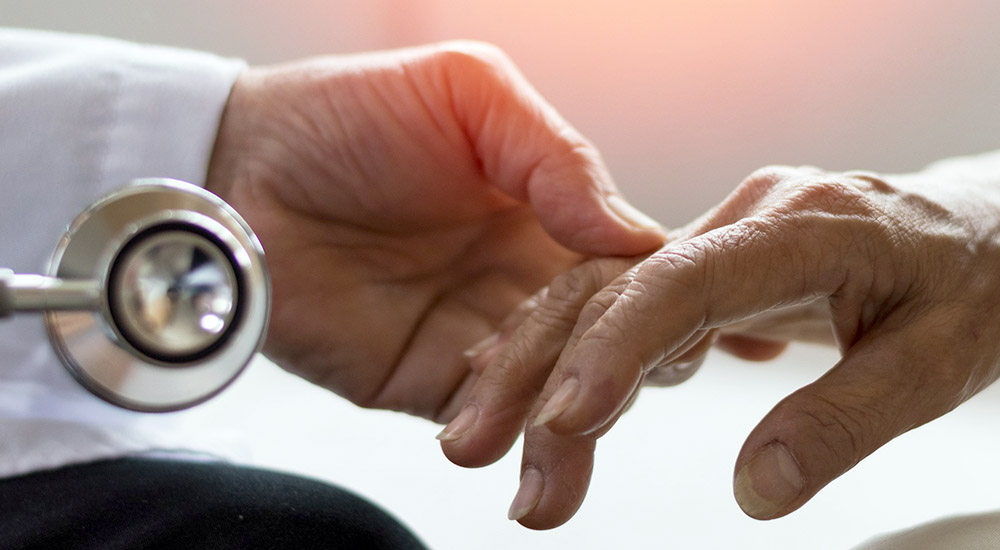April is Parkinson’s Disease (PD) Awareness Month. Parkinson’s Disease is a service-connected diagnosis related to Agent Orange and Camp Lejeune.
A Veteran with PD can be seen by a neurologist, a geriatric psychiatrist, a geriatrics fellow, a neuro-pharmacist and a nurse coordinator all in one clinic visit.
The VA Parkinson’s Disease Research Education & Clinical Centers (PADRECCs) are Centers of Excellence designed to serve Veterans affected by Parkinson’s through state-of-the-art clinical care, research, education, national outreach and advocacy.
We delve into issues caused by non-motor symptoms such as depression, anxiety and apathy. Deep dives into these symptoms can improve quality of life for PD patients.

Addressing the needs of Veterans with virtual visits fostering social connection to prevent loneliness.
Examples of an integrative Whole Health approach include access to acupuncture, yoga, Tai Chi, mindfulness and health-coaching. We have been proactively working to address the needs of Veterans throughout the pandemic with virtual visits using VA video connect and fostering social connection to prevent or reduce loneliness.
Greater risk for loneliness
Veterans are at greater risk for social isolation and loneliness, which are social determinants that can lead to increased risks of depression, anxiety, substance abuse and suicidal ideations.
Loneliness and social isolation are as bad for your health as smoking half a pack of cigarettes a day or being clinically obese. These are very important issues for caregivers as well.
Researchers have identified three dimensions of loneliness reflecting the particular relationships that are missing. Intimate, or emotional loneliness, is the yearning for a close confidante or emotional partner. Relational, or social loneliness, is the longing for close friendships and social companionship. Collective loneliness is the need for a network or community of people who share one’s sense of purpose and interests. Loneliness can be felt if any one of these dimensions are not satisfied. And it is possible to be happily married and still feel lonely.

Dr. Indu Subramanian will speak on Veterans and PD: Social Connection and Empowerment. Zoom April 28.
Program provides volunteers to combat loneliness
There is new data about the effects of loneliness on People with Parkinson Disease (PWP). Dr. Subramanian – along with Dr. Laurie Mischley and Josh Farahnik – conducted a study looking at a large cohort of PWP.
The greatest discrepancies between lonely and non-lonely individuals were found with social withdrawal/loss of interest, motivation/initiative, depression and anxiety. The study was published in NPJ Parkinson Journal.
What can we do? One answer may come in the form of VA’s new social prescription program, Compassionate Contact Corps, from the VA Center for Development & Civic Engagement (formerly VA Voluntary Service). This tele-support program uses trained volunteers to help combat loneliness and social isolation in Veterans through regular phone or video chats.
To participate in the program, Veterans must receive a referral from their VA clinician.
Clinicians may also recommend or prescribe additional resources or activities in the community to help patients develop healthy social connections. Other types of proactive phone calls to patients might come from fellow patients. Also, from support group leaders, volunteers or health care providers.
Helpful information and online presentation
These types of connections are a critical link to the outside world for Veterans who may lack a computer, smart phone, internet connection (due to cost or remoteness) or who may be technologically challenged.
If you are a Veteran with Parkinson’s, care for one, or would simply like more information, here are some additional resources from The Parkinson’s Foundation: Veterans and Parkinson’s Disease, Agent Orange and Veterans Benefits.
Dr. Indu Subramanian will speak on Veterans and PD: Social Connection and Empowerment on April 28. The Zoom event is open to the public and will focus on the loneliness issue and Veterans with PD. Registration is required.
Prince Taylor is deputy director of the Center for Development & Civic Engagement.
Topics in this story
More Stories
The Medical Foster Home program offers Veterans an alternative to nursing homes.
Watch the Under Secretary for Health and a panel of experts discuss VA Health Connect tele-emergency care.
The 2024 National Veteran Suicide Prevention Annual Report provides the foundation for VA’s suicide prevention programs and initiatives.







None
Dates of service 5/1952 to 5/1955. PI, Camp Lejeune, Camp Pedelton, was on replacement for Korea, changed to
Japan.
I have recently started to have “the shakes”, and local doctor has been treating me for parkinson”s disease.
. I need to schedule appointment with VA staff.
Charles A. Johnson